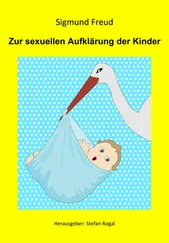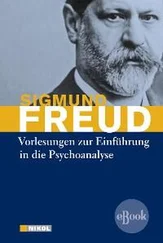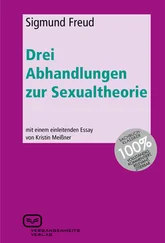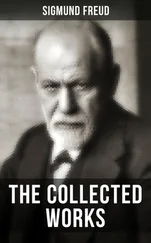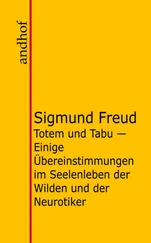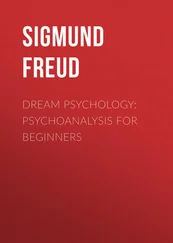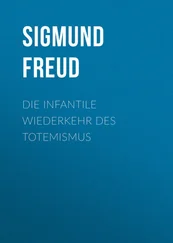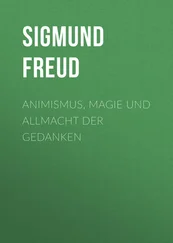Sigmund Freud - Dream Psychology
Здесь есть возможность читать онлайн «Sigmund Freud - Dream Psychology» весь текст электронной книги совершенно бесплатно (целиком полную версию без сокращений). В некоторых случаях можно слушать аудио, скачать через торрент в формате fb2 и присутствует краткое содержание. Год выпуска: 2014, Издательство: epubBooks Classics, Жанр: Психология, на английском языке. Описание произведения, (предисловие) а так же отзывы посетителей доступны на портале библиотеки ЛибКат.
- Название:Dream Psychology
- Автор:
- Издательство:epubBooks Classics
- Жанр:
- Год:2014
- ISBN:нет данных
- Рейтинг книги:3 / 5. Голосов: 1
-
Избранное:Добавить в избранное
- Отзывы:
-
Ваша оценка:
- 60
- 1
- 2
- 3
- 4
- 5
Dream Psychology: краткое содержание, описание и аннотация
Предлагаем к чтению аннотацию, описание, краткое содержание или предисловие (зависит от того, что написал сам автор книги «Dream Psychology»). Если вы не нашли необходимую информацию о книге — напишите в комментариях, мы постараемся отыскать её.
Dream Psychology — читать онлайн бесплатно полную книгу (весь текст) целиком
Ниже представлен текст книги, разбитый по страницам. Система сохранения места последней прочитанной страницы, позволяет с удобством читать онлайн бесплатно книгу «Dream Psychology», без необходимости каждый раз заново искать на чём Вы остановились. Поставьте закладку, и сможете в любой момент перейти на страницу, на которой закончили чтение.
Интервал:
Закладка:
An interesting train of thought now presents itself if we consider the relations of this inhibition of discharge by the second system to the regulation through the principle of pain. Let us now seek the counterpart of the primary feeling of gratification, namely, the objective feeling of fear. A perceptive stimulus acts on the primitive apparatus, becoming the source of a painful emotion. This will then be followed by irregular motor manifestations until one of these withdraws the apparatus from perception and at the same time from pain, but on the reappearance of the perception this manifestation will immediately repeat itself (perhaps as a movement of flight) until the perception has again disappeared. But there will here remain no tendency again to occupy the perception of the source of pain in the form of an hallucination or in any other form. On the contrary, there will be a tendency in the primary apparatus to abandon the painful memory picture as soon as it is in any way awakened, as the overflow of its excitement would surely produce (more precisely, begin to produce) pain. The deviation from memory, which is but a repetition of the former flight from perception, is facilitated also by the fact that, unlike perception, memory does not possess sufficient quality to excite consciousness and thereby to attract to itself new energy. This easy and regularly occurring deviation of the psychic process from the former painful memory presents to us the model and the first example of psychic repression . As is generally known, much of this deviation from the painful, much of the behavior of the ostrich, can be readily demonstrated even in the normal psychic life of adults.
By virtue of the principle of pain the first system is therefore altogether incapable of introducing anything unpleasant into the mental associations. The system cannot do anything but wish. If this remained so the mental activity of the second system, which should have at its disposal all the memories stored up by experiences, would be hindered. But two ways are now opened: the work of the second system either frees itself completely from the principle of pain and continues its course, paying no heed to the painful reminiscence, or it contrives to occupy the painful memory in such a manner as to preclude the liberation of pain. We may reject the first possibility, as the principle of pain also manifests itself as a regulator for the emotional discharge of the second system; we are, therefore, directed to the second possibility, namely, that this system occupies a reminiscence in such a manner as to inhibit its discharge and hence, also, to inhibit the discharge comparable to a motor innervation for the development of pain. Thus from two starting points we are led to the hypothesis that occupation through the second system is at the same time an inhibition for the emotional discharge, viz. from a consideration of the principle of pain and from the principle of the smallest expenditure of innervation. Let us, however, keep to the fact—this is the key to the theory of repression—that the second system is capable of occupying an idea only when it is in position to check the development of pain emanating from it. Whatever withdraws itself from this inhibition also remains inaccessible for the second system and would soon be abandoned by virtue of the principle of pain. The inhibition of pain, however, need not be complete; it must be permitted to begin, as it indicates to the second system the nature of the memory and possibly its defective adaptation for the purpose sought by the mind.
The psychic process which is admitted by the first system only I shall now call the primary process; and the one resulting from the inhibition of the second system I shall call the secondary process. I show by another point for what purpose the second system is obliged to correct the primary process. The primary process strives for a discharge of the excitement in order to establish a perception identity with the sum of excitement thus gathered; the secondary process has abandoned this intention and undertaken instead the task of bringing about a thought identity . All thinking is only a circuitous path from the memory of gratification taken as an end–presentation to the identical occupation of the same memory, which is again to be attained on the track of the motor experiences. The state of thinking must take an interest in the connecting paths between the presentations without allowing itself to be misled by their intensities. But it is obvious that condensations and intermediate or compromise formations occurring in the presentations impede the attainment of this end–identity; by substituting one idea for the other they deviate from the path which otherwise would have been continued from the original idea. Such processes are therefore carefully avoided in the secondary thinking. Nor is it difficult to understand that the principle of pain also impedes the progress of the mental stream in its pursuit of the thought identity, though, indeed, it offers to the mental stream the most important points of departure. Hence the tendency of the thinking process must be to free itself more and more from exclusive adjustment by the principle of pain, and through the working of the mind to restrict the affective development to that minimum which is necessary as a signal. This refinement of the activity must have been attained through a recent over–occupation of energy brought about by consciousness. But we are aware that this refinement is seldom completely successful even in the most normal psychic life and that our thoughts ever remain accessible to falsification through the interference of the principle of pain.
This, however, is not the breach in the functional efficiency of our psychic apparatus through which the thoughts forming the material of the secondary mental work are enabled to make their way into the primary psychic process—with which formula we may now describe the work leading to the dream and to the hysterical symptoms. This case of insufficiency results from the union of the two factors from the history of our evolution; one of which belongs solely to the psychic apparatus and has exerted a determining influence on the relation of the two systems, while the other operates fluctuatingly and introduces motive forces of organic origin into the psychic life. Both originate in the infantile life and result from the transformation which our psychic and somatic organism has undergone since the infantile period.
When I termed one of the psychic processes in the psychic apparatus the primary process, I did so not only in consideration of the order of precedence and capability, but also as admitting the temporal relations to a share in the nomenclature. As far as our knowledge goes there is no psychic apparatus possessing only the primary process, and in so far it is a theoretic fiction; but so much is based on fact that the primary processes are present in the apparatus from the beginning, while the secondary processes develop gradually in the course of life, inhibiting and covering the primary ones, and gaining complete mastery over them perhaps only at the height of life. Owing to this retarded appearance of the secondary processes, the essence of our being, consisting in unconscious wish feelings, can neither be seized nor inhibited by the foreconscious, whose part is once for all restricted to the indication of the most suitable paths for the wish feelings originating in the unconscious. These unconscious wishes establish for all subsequent psychic efforts a compulsion to which they have to submit and which they must strive if possible to divert from its course and direct to higher aims. In consequence of this retardation of the foreconscious occupation a large sphere of the memory material remains inaccessible.
Among these indestructible and unincumbered wish feelings originating from the infantile life, there are also some, the fulfillments of which have entered into a relation of contradiction to the end–presentation of the secondary thinking. The fulfillment of these wishes would no longer produce an affect of pleasure but one of pain; and it is just this transformation of affect that constitutes the nature of what we designate as "repression," in which we recognize the infantile first step of passing adverse sentence or of rejecting through reason . To investigate in what way and through what motive forces such a transformation can be produced constitutes the problem of repression, which we need here only skim over. It will suffice to remark that such a transformation of affect occurs in the course of development (one may think of the appearance in infantile life of disgust which was originally absent), and that it is connected with the activity of the secondary system. The memories from which the unconscious wish brings about the emotional discharge have never been accessible to the Forec., and for that reason their emotional discharge cannot be inhibited. It is just on account of this affective development that these ideas are not even now accessible to the foreconscious thoughts to which they have transferred their wishing power. On the contrary, the principle of pain comes into play, and causes the Forec. to deviate from these thoughts of transference. The latter, left to themselves, are "repressed," and thus the existence of a store of infantile memories, from the very beginning withdrawn from the Forec., becomes the preliminary condition of repression.
Читать дальшеИнтервал:
Закладка:
Похожие книги на «Dream Psychology»
Представляем Вашему вниманию похожие книги на «Dream Psychology» списком для выбора. Мы отобрали схожую по названию и смыслу литературу в надежде предоставить читателям больше вариантов отыскать новые, интересные, ещё непрочитанные произведения.
Обсуждение, отзывы о книге «Dream Psychology» и просто собственные мнения читателей. Оставьте ваши комментарии, напишите, что Вы думаете о произведении, его смысле или главных героях. Укажите что конкретно понравилось, а что нет, и почему Вы так считаете.


